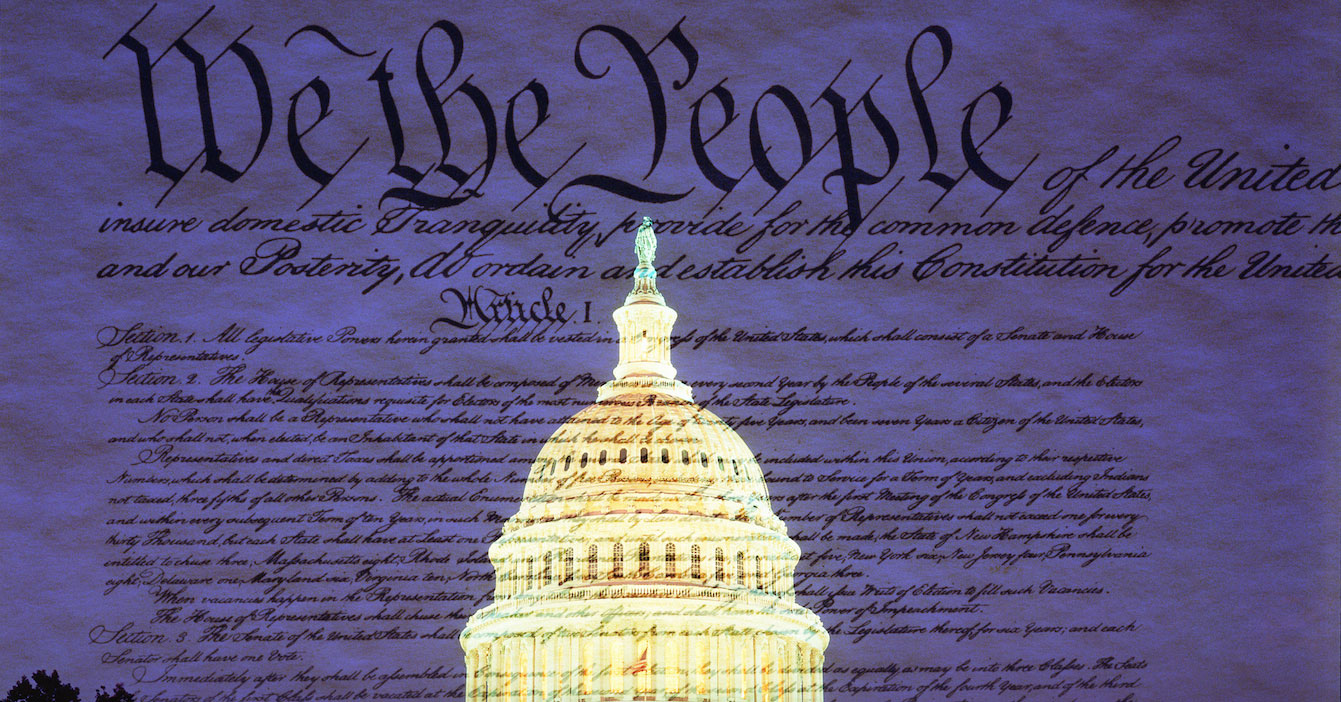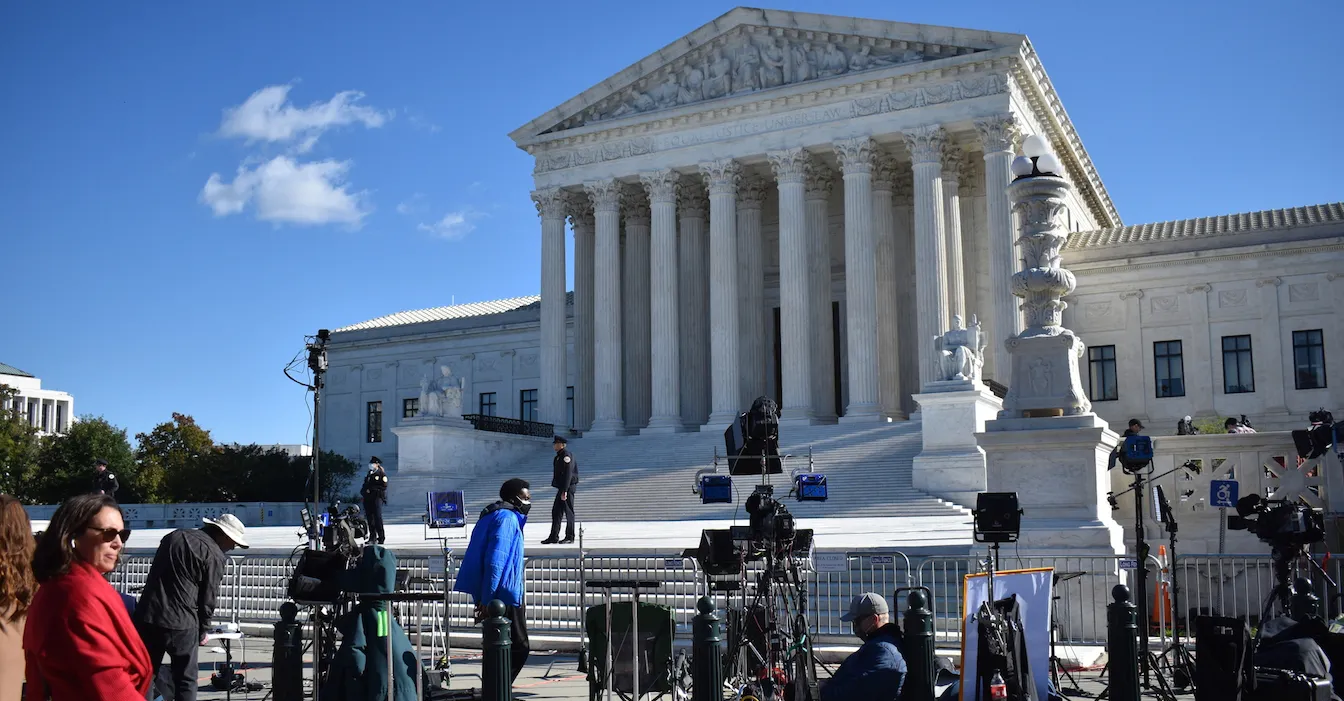The U.S. Supreme Court refused once again on Friday to block a Texas law banning abortions well before the standard set in Roe v. Wade, but was virtually unanimous in letting pre-enforcement challenges continue in lower courts.
In its ruling, which was considerably more detailed than a midnight order in September that also let the law stand, the court – powered by a conservative majority that includes three appointees of former President Donald Trump – nonetheless reached much the same conclusion.
Then, as now, the majority stressed that it wasn’t resolving any underlying constitutional claims. The most recent opinion, however, follows a hearing in which conservative justices alarmed abortion rights supporters by evincing a willingness to let stand a Mississippi law that also flouts Roe’s prohibition against banning abortion before the fetus can survive outside the womb, a standard set in 1973.
In that context, the court’s relative inaction on Friday preserves an array of options for altering or even discarding Roe and the landmark Casey v. Planned Parenthood decision that followed it nearly 20 years later.
For now, the ruling authored by Justice Neil Gorsuch allows federal suits, which began before the law took effect, to proceed against Texas licensing officials who could take enforcement action against abortion providers, a position supported by eight justices.
It dismisses suits seeking targeting a number of other defendants - including Texas Attorney General Ken Paxton, an outspoken champion of what's known as Senate Bill 8 - partly because of the bill's structure.
'AN END TO THIS MADNESS'
The novel legislation relies for enforcement on private civil suits – which can be filed by anyone, regardless of personal injury – rather than the machinery of state government. Its framers have said their goal was to outlaw abortion in a way that would survive judicial scrutiny, U.S. Supreme Court precedent notwithstanding.
“The court holds that the petitioners may bring a pre-enforcement challenge in federal court as one means to test Senate Bill 8’s compliance with the federal Constitution,” Gorsuch wrote. “Any individual sued under SB 8 may raise state and federal constitutional arguments in his or her defense without limitation. Whatever a state statute may or may not say about a defense, applicable federal constitutional defenses always stand available when properly asserted.”
SB 8 bans abortions as soon as a fetal heartbeat is detected, which can occur as early as six weeks after the mother’s last menstrual period – before many women know they’re pregnant and well in advance of the roughly six months at which a fetus can survive outside the womb, a point known as viability.
A successful suit nets the plaintiff an award of at least $10,000, while defendants who fend off a claim can’t even recover their legal expenses.
Despite 8-1 agreement on allowing some challenges to SB 8 to proceed, justices remained bitterly divided on much of Friday’s decision.
Justice Clarence Thomas, an appointee of President George H.W. Bush, wouldn’t have allowed any of the pre-enforcement challenges in Whole Women's Health v. Jackson to continue, while Justice Sonia Sotomayor, an appointee of President Barack Obama, accused the majority of neglecting its responsibility by failing to block enforcement of the law.
“The court should have put an end to this madness months ago, before SB 8 first went into effect,” she wrote in an opinion joined by Justices Stephen Breyer and Elena Kagan. “It failed to do so then, and it fails again today.”
By refusing to permit suits against state court officials and Attorney General Paxton, Sotomayor continued, the court “effectively invites other states to refine SB 8’s model for nullifying federal rights. The court thus betrays not only the citizens of Texas but also our constitutional system of government."
Whole Women's Health, which has four abortion clinics in Texas, was represented by Marc Hearon, senior counsel for the Center for Reproductive Rights, during oral arguments on the case. Solicitor General Judd Stone presented the state's case.
In a related matter, the Justice Department's lawsuit against the state as a whole to protect the supremacy of the federal Constitution, the majority of justices determined that they had "improvidently granted" certiorari before judgement in the matter.

They rejected the Biden administration's request to vacate a 5th Circuit Court of Appeals order allowing enforcement of SB 8; as in Whole Women's Health, Sotomayor demurred.
"SB 8 is a brazen attack on the coordinate branches of the federal government," Solicitor General Elizabeth Prelogar argued on the Biden administration's behalf during the Nov. 1 hearing. "If Texas can nullify Roe and Casey in this manner, then other states could do the same with other constitutional rights or other decisions of this court that they disfavor."
That argument was underscored in Sotomayor's dissent in Whole Women's Health.
"New permutations of SB 8 are coming," she wrote. "In the months since this court failed to enjoin the law, legislators in several states have discussed or introduced legislation that replicates its scheme to target locally disfavored rights. What are federal courts to do if, for example, a state effectively prohibits worship by a disfavored religious minority through crushing 'private' litigation burdens amplified by skewed court procedures, but does a better job than Texas of disclaiming all enforcement by state officials? Perhaps nothing at all, says this court."
In its finer moments, the Supreme Court has ensured that constitutional rights can't be nullified openly by state officials or indirectly through evasive schemes, she continued.
"Today's fractured court evinces no such courage," she wrote, instead leaving "all manner of constitutional rights more vulnerable than ever before."
It's a stinging rebuke, one that Gorsuch spent more than two pages of the majority opinion addressing.
Opening with a claim that her "rhetoric bears no relation to reality," the Trump appointee argued that "many paths exist to vindicate the supremacy of federal law in this area" and said "everyone acknowledges that other pre-enforcement challenges may be possible in state court."
Fourteen such cases already make federal and constitutional claims against SB 8, he said.
Against that backdrop, Sotomayor's suggestion "that the court's ruling somehow 'clears the way' for the 'nullification' of federal law along the lines of what happened in the Jim Crow South not only wildly mischaracterizes the impact of today's decisions, it cheapens the gravity of past wrongs."


